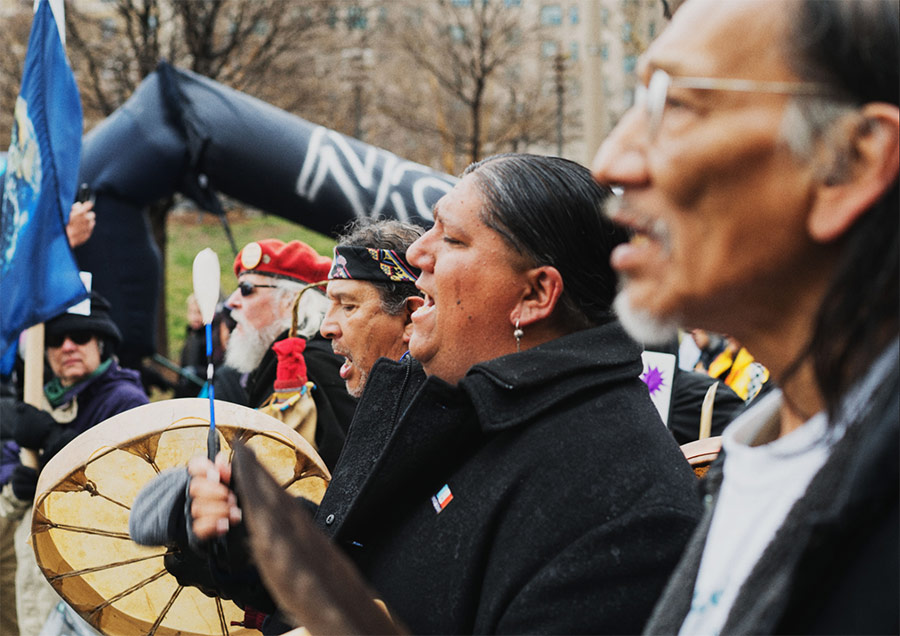Although the month of November is federally recognized as Native American Heritage Month, 211info knows the continued oppression of Indigenous people must be addressed at all times.
211info recognizes the nine federally recognized tribal communities of the Burns Paiute Tribe, the Confederated Tribes of the Coos, Lower Umpqua and Siuslaw Indians, the Confederated Tribes of the Grand Ronde Community of Oregon, the Confederated Tribes of Siletz Indians, the Confederated Tribes of the Umatilla Indian Reservation, the Confederated Tribes of Warm Springs, the Coquille Indian Tribe, the Cow Creek Band of Umpqua Tribe of Indians, and the Klamath Tribes as the original and rightful caretakers of the land now known as the state of Oregon.
We also recognize the federally recognized tribal community of the Cowlitz Tribe and the peoples of the Lower Columbia River as the original and rightful caretakers of the land now known as the southwest counties of the state of Washington.
This land was stolen by white colonizers through various means, including: broken treaties and promises of protection and sovereignty; the forced placement of Indigenous children into boarding schools that would eradicate their tribal culture and serve as the burial grounds for an unknown number of Indigenous youth; and genocide.
It is important to note that land acknowledgements such as this statement cannot go far enough to honor all Indigenous peoples that inhabited this land prior to colonization. The concept of “federally recognized” tribal nations is a construct of white supremacy, giving limited sovereignty to some groups while countless others are left unseen or intentionally excluded by the United States government.
Although the month of November is federally recognized as Native American Heritage Month, 211info knows the continued oppression of Indigenous people must be addressed at all times. Tribal nations experience disproportionate rates of poverty, inequitable health outcomes, and violence. The Missing and Murdered Indigenous Women campaign seeks to elevate the crisis of Indigenous women whose lives are lost with no response or regard under the American criminal justice system.
211info implores us to consider these issues daily and find ways to honor and empower the enduring presence of Indigenous Americans. We will continue to advocate for accountability within our own organization and listen to the voices of Indigenous peoples as we stand beside them on the path towards decolonization.
One small step individuals can take is to better understand and learn more about Indigenous communities in Oregon. Here are some things that we have done at 211info. We invite you to join us on this journey, with some resources below.
- Send out all staff memos on Indigenous Peoples Day with educational information.
- Send out memos to all staff with information about how to find community resources listed in the 211info database to support Indigenous communities.
- Offer opportunities to staff to attend external community trainings
- Invite community resources, such as the Cowlitz Tribal Treatment program, to provide an overview of their program to staff.
- Work with the Confederated Tribes of Siletz Indians Self Sufficiency Program to recruit and hire staff that identify as Indigenous/Native American through their works program
- And more!….
The lists below are non-exhaustive – but a small snapshot of where to start in furthering support for Indigenous communities in Oregon.
Community Organizations
- The Oregon Native American Chamber
- Native American Youth and Family Center (NAYA)
- Native American Rehabilitation Association (NARA)
- Affiliated Tribes of Northwest Indians Economic Development Corporation (ATNI-EDC)
Support Indigenous Enterprises
- Portland Indigenous Marketplace
- NAYA Engagement, Advocacy and Policy
- Potlatch Fund
- Equitable Giving Circle
Further Learning
- Native Land Digital: an unofficial interactive map of the original placement of Indigenous groups based on research and community contributions
- Oregon State University Land Acknowledgement: information about the history of Indigenous populations in the land known as the state of Oregon
- Missing and Murdered Indigenous Women’s Report: reported by United States Attorney Billy J. Williams, U.S. Attorney’s Office District of Oregon in February 2021
- Missing and Murdered Native American Women Legislative Report: reported by Captain Monica Alexander, Washington State Patrol in June 2019
- Indigenous People’s Day: voted into law by the Oregon Legislature in May 2021, recognized federally in October 2021
If you or someone you know has been impacted by violence, murder, or the disappearance of Indigenous persons, there are resources to help:
